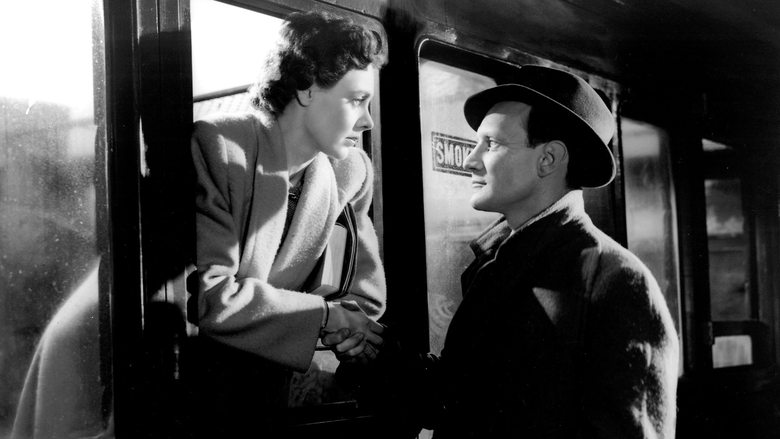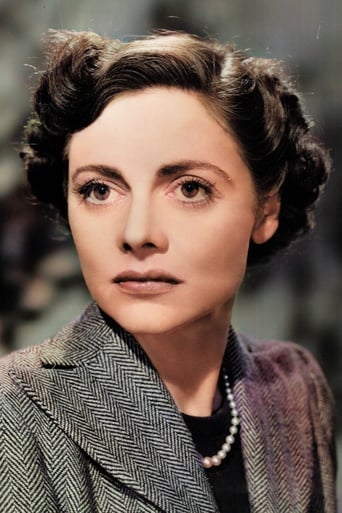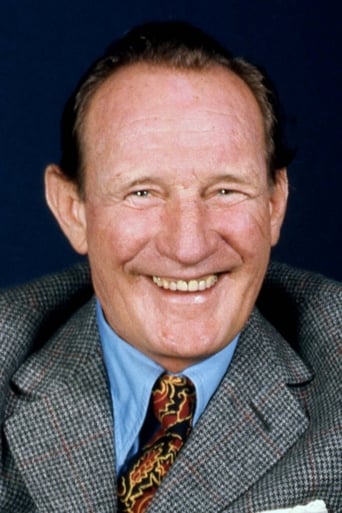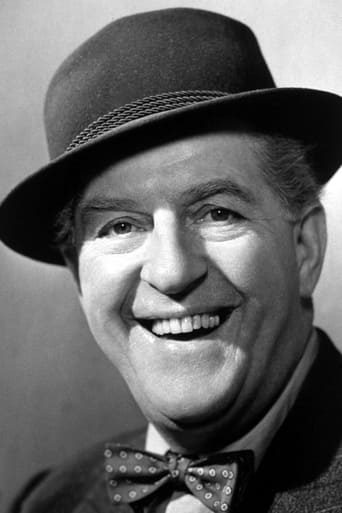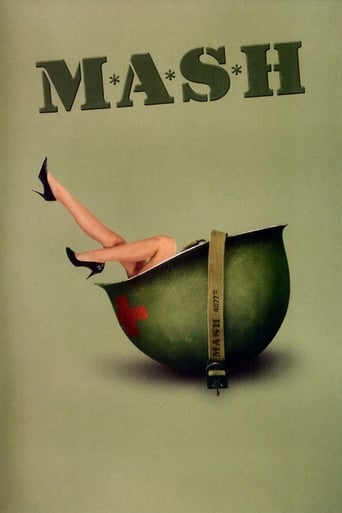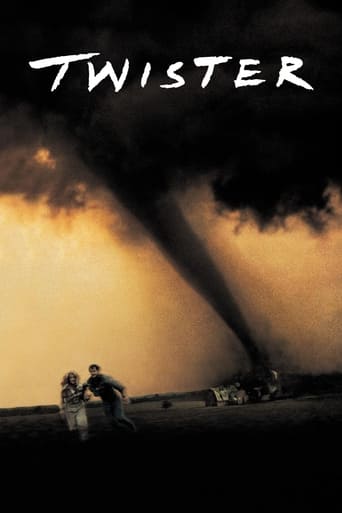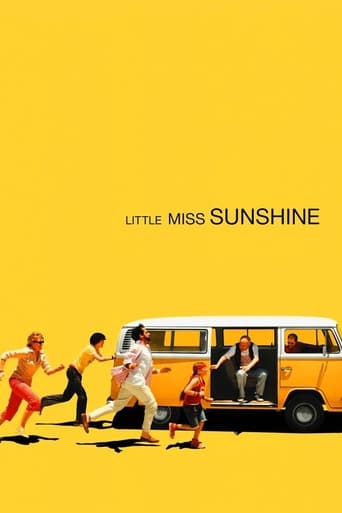Brief Encounter (1946)
Returning home from a shopping trip to a nearby town, bored suburban housewife Laura Jesson is thrown by happenstance into an acquaintance with virtuous doctor Alec Harvey. Their casual friendship soon develops during their weekly visits into something more emotionally fulfilling than either expected, and they must wrestle with the potential havoc their deepening relationship would have on their lives and the lives of those they love.
Watch Trailer
Cast
Similar titles



Reviews
Yawn. Poorly Filmed Snooze Fest.
Very very predictable, including the post credit scene !!!
Good concept, poorly executed.
Absolutely Brilliant!
What's striking about this film from a present day perspective is how platonic the relationship between Laura Jesson (Celia Johnson) and Alec Harvey (Trevor Howard) actually was. Made today, the movie would have required the prerequisite hop into bed after the first kiss, but in the 1940's, that would have gotten you into trouble with the Production Code. What I liked about the story was that it featured two ordinary people who weren't glamorous, rich or having any other defining characteristic that might have placed them a notch above average. For moviegoers of the era, that template would have appealed to most at time when people weren't so self absorbed with celebrity and fame. Today, the picture would be a drag as an original release, although for cinema fans there's much here to admire. Director David Lean tells his story with compassion and grace, and though the extramarital affair appears doomed from the start, the fated couple enjoys their moments of fleeting happiness together. What I could have stood less of was the intrusive narration by Celia Johnson's character; my own feeling is that an effective story doesn't need to be translated by one of the characters. And if I didn't know the director of the film was David Lean, I would have guessed Hitchcock, who constantly employed chance meetings, conflicted characters and British ambience, with the railway station setting a natural.
Irrevocably putting UK maestro David Lean on the international map of a rising future cinematic titan, continuing his auspicious collaborations with famed playwright Noël Coward, BRIEF ENCOUNTER has surmounted itself at the apogee of film romanticism ever since. Based on Coward's one-act play, it is a garden-variaty extramarital affair between Laura Jesson (Johnson), a middle-class housewife and Alec Harvey (Howard), a married doctor. The film starts in the refreshment tea room of Milford Junction Station, a recurring place where they part ways after their weekly assignations, which also bookends from their first chance meeting to the ultimate farewell, but Lean cunningly leaves them in the periphery of his frame in the opening introduction, the initial perspective is of a gabby interloper Ms. Dolly Messiter (Gregg), an acquaintance of Laura, with whom she shares the same train route. Ms. Messiter's intrusion noticeably throws the pair for a loop, but Alec manages to retain his courtesy until his train arrives, and leaves Laura in an almost catatonic state, even the obtuse Ms. Messiter can tell there is something amiss about her, only if she would know, she has inconveniently obtruded herself into their last goodbye. After returning to her suburban residence, the voiceover of a distraught Laura begins to enunciate their weekly encounters from stem to stern, at once mundanely amicable and irresistibly intimate. Hence, the story is exclusively told from Laura's viewpoint, and Celia Johnson's extraordinary performance is nonpareil in its acute caliber and immense empathy, it sweeps all over you like a cataract ever since the very first gaze she projects in a close-up, which is so galvanizing that we are rapt in anticipation of its seething undertow's unfolding, and she pampers us with the full treatment, playing out against a cordial and debonair Trevor Howard, who has his own challenge to live up to Johnson's standard in less ample allotment in terms of screen time and backstory, and leaves a sterling impression as an idealist, upstanding, charming man, makes for an emphatically conflicted dyad with Johnson enmeshed in the moral quagmire, and together they elevate the material onto a situationist slant that entirely shucking off their personal liabilities from homily: it can happen to anyone, and when it happens, no one can afford an easy escape, more pertinently, in Laura's imaginative vignettes, Lean's film rams home that this luxury of living one's dreamed life is an everyday illusion that individuality is practically irrelevant, an inevitable temptation those who encounter must cope with wisely, touch wood! Plumping for Rachmaninoff's Second Piano Concerto as the film's thematic signifier, Mr. Lean also constructs every shot with fluid nicety and supreme lighting in sharpening the focus on its romantic mythos and the characters' torrid inscape, and cleanses any blemish of vulgarity from the seemingly indiscreet situation, this is a film very close to perfection by this reviewer's lights, and hopefully yours too.
'Brief Encounter' is a film from the initial part of David Lean's career as a filmmaker when he was majorly known for being the most skilled director at interpreting Noel Coward's plays on celluloid. The screenplay of 'Brief Encounter' written by Lean himself along with Ronald Neame and Anthony Havelock-Allan is based on Coward's play 'Still Life'. The film spreads out the play and expands on it. Unlike Lean's more popular works like 'Lawrence of Arabia' or 'The Bridge on the River Kwai', 'Brief Encounter' is a much more contained film with a smaller scope. But for me the film is as special as Lean's more grander works due to its intimate storytelling and mature depiction of an extra-marital affair.I think there are a few hints in the film about how suffocating the uptight nature of British middle/upper class society could be at the time. But to be honest, the social commentary is very nuanced and the major aspect that Lean is interested in is the exploration of the characters, especially Laura. The film is interested in focusing on the struggle that Laura goes through while balancing a sense of guilt along with desire. Most generic films that deal with extra- marital affairs resort a little too much to steamy sexual scenes for depicting the passion between the participants which invariably ends up being nothing but a source of the audience's titillation without saying anything about the characters. 'Brief Encounter' on the other hand is based solely on the characters' inner struggles. David Lean never judges them for their actions. There is a humane sense with which Laura and Alec get treated. These characters know that what they are getting into has no future, but the circumstances and tender nature in which they treat each other makes it impossible for them to resist each other's company.Lean also beautifully shows the difference between the grander scheme of things and the individual problems and struggles. A person can be going through the most traumatic experience, but it might not be of any significance in the bigger picture. This theme is brilliantly depicted in the first scene. We enter the railway station tea stall. We see the ancillary characters in the story talking to each other. Suddenly the camera pans away from them and moves to a table where Laura and Alec are sitting. We don't know them yet. We don't even hear what they are saying to each other, their conversation gets drowned by the other conversations being held in the room. It's only when we enter the psyche of Laura which happens later in the film that we truly get to understand the gravity of that first scene. Lean's direction from a basic technical standpoint has to be admired too along with the way he handles the theme of the story and his actors. He remains nuanced in his way of using the camera. Whenever Lean wants us to know what Laura is thinking, he approaches Laura ever so gently with the camera along with the dimming of the lights in the shot. There is a scene where a sudden change in mood makes the camera tilt to the right, as the tension settles, the camera tilts back to its normal straight position. Lean also does something that I love, he stages one particular scene twice, but from different perspectives. It always impresses me when a director is able to pull this storytelling technique off properly and Lean does so with flying colours.From an acting sense, the film has good performances all round, but the only actor that deserves a special mention is Celia Johnson. She is the one who drives this film forward. She is very subtle, very expressive and brilliantly portrays the struggle of Laura. She makes it impossible for the audience to not feel for Laura. Her voice-over is also brilliant.If I have to nit-pick, I'll say that maybe the voice-over in some scenes could have been more discreetly used. In certain scenes I thought, the emotional effect would have been more powerful if what Laura is thinking wasn't completely told to the audience, but it really is a very minor complaint.I'll end this review by reaffirming my appreciation for 'Brief Encounter'. This is an example of a mature piece of filmmaking where the director fleshes out the central character completely in front of you. Highly recommended.
Yes, this is actually a very fine movie.But it's the dialogue, at least for an American, that drives you crazy.Not that there's really anything wrong with it.But you have heard a thousand parodies of this dialogue in American movies and TV. It is the ultra-controlled, almost emotionless, clipped dialogue with just the right sort of - what appears to Americans as - upper-class accents. Declarations of love that are always completely controlled. NO ONE loses control This movie is probably enjoyable for English audiences. But for American audiences who have heard these dialogues parodied a million times, it seems just SO stereo typically English, so very, very Noel Coward.

